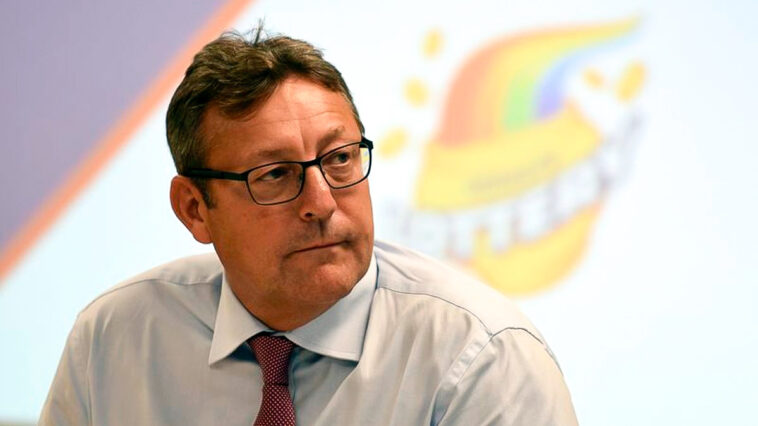The UK National Lottery operator Camelot has reported a year-on-year decrease in annual sales, partly attributed to the cost of living crisis that has affected consumers’ disposable income. Camelot announced it generated £8.1 billion ($9.9 billion) in sales in the year to March 31, down 3.4% from 2021’s record of £8.3 billion ($10 billion).
The company attributed the drop in sales performance to a 6.6% decrease in sales of online instant games, which it said was due to “greater competition for people’s attention to spend after the lifting of Covid restrictions” and “growing economic uncertainty over the latter part of the year”, Financial Times reported. The annual inflation rate in the UK increased to 7% in March 2022, the highest since March 1992, from 6.2% in February.
Soaring food prices pushed British consumer price inflation to a 40-year high of 9.1% last month, the highest rate out of the Group of Seven countries and underlining the severity of the cost-of-living crunch.
The reading, up from 9% in April
Sales across the 44,500 retailers that sell its tickets fell 3.9% year on year to £4.6 billion ($5.6 billion) against a backdrop of challenges caused by the Omicron Covid variant in early 2022, alongside a cost of living crisis which, according to the lottery operator, has slowed down retail recovery as consumers ”tightened their belts.”
Playing on mobile continued to be the digital channel of choice for players throughout the year. With sales of £2,449.4 million ($2.992 million), playing National Lottery games on smartphones and tablets accounted for 72% of all digital sales. Much of this was driven by growth in The National Lottery’s apps, with sales up by £93.5 million ($114 million) to an all-time high of £1,687.8 million ($2,060.7 million).
“Online player engagement remains very strong and Camelot saw strong retention of players who had migrated from retail as a result of the pandemic,” the company stated. “It built on this with some highly effective acquisition activity, which resulted in 1.8 million new player registrations over the year – taking its digital player base to a record 10.1 million active players.”
Despite the overall sales drop, Camelot Chairman Sir Hugh Robertson welcomed the results, which see over £8 billion in sales for two consecutive years. “At a time when the National Lottery has faced uncertainty on a number of fronts, Camelot has once again raised a record amount for Good Causes from ticket sales.”
Camelot CEO Nigel Railton added: “Achieving National Lottery sales of over £8 billion two years in a row while maintaining very high levels of public participation, despite the challenging and changing external environment, proves that our strategy of offering great consumer choice in a safe and convenient way continues to be hugely successful.”
Allwyn's Karel Komarek
The drop in sales comes as the company challenges the Gambling Commission’s decision to award the next lottery license to a rival operator. In March, Camelot lost its award to run the National Lottery after 28 years at the helm as Allwyn Entertainment was named the UKGC’s preferred applicant. Allwyn, owned by the Czech group Sazka, is expected to take over from Camelot in 2024 following this decision.
Camelot is currently awaiting the judgment on a legal challenge it made last month that attempted to block the UKGC from handing over the National Lottery to Allwyn, accusing the regulator on the grounds of breaking the law when it allegedly discarded Camelot’s score in the system that measures the bids.
The legal challenge stems from a firm belief that the Gambling Commission failed to provide the operator “a satisfactory response” on what happened for the business to lose the license application. Camelot had a 15% “risk factor” discount as the former National Lottery’s operator that was supposed to be applied to bidders’ financial forecasts.
Camelot is expected to claim that the discount was initially applied by the regulator, but later changed to zero in the final adjudication. The company alleges there is a risk the lottery will be run for ten years by an operator that has been “unlawfully appointed.”





